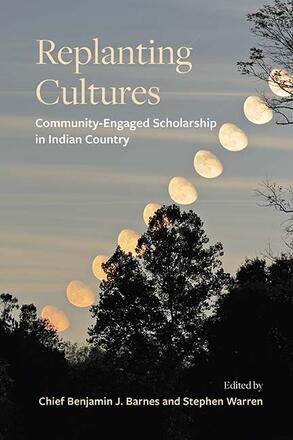
Replanting Cultures
Community-Engaged Scholarship in Indian Country
Alternative formats available from:
Provides a theoretical and practical guide to community-engaged scholarship with Indigenous peoples in the United States and Canada.
Description
Replanting Cultures provides a theoretical and practical guide to community-engaged scholarship with Indigenous communities in the United States and Canada. Chapters on the work of collaborative, respectful, and reciprocal research between Indigenous nations and colleges and universities, museums, archives, and research centers are designed to offer models of scholarship that build capacity in Indigenous communities. Replanting Cultures includes case studies of Indigenous nations from the Stó:lō of the Fraser River Valley to the Shawnee and Miami tribes of Oklahoma, Ohio, and Indiana. Native and non-Native authors provide frank assessments of the work that goes into establishing meaningful collaborations that result in the betterment of Native peoples. Despite the challenges, readers interested in better research outcomes for the world's Indigenous peoples will be inspired by these reflections on the practice of community engagement.
Benjamin J. Barnes is Chief of the Shawnee Tribe. Stephen Warren is Professor of History and American Studies and Chair of American Studies at the University of Iowa. He is the author of The Shawnees and Their Neighbors, 1795–1870 and The Worlds the Shawnees Made: Migration and Violence in Early America and the editor of The Eastern Shawnee Tribe of Oklahoma: Resilience through Adversity.
Reviews
"Thoughtful, in-depth, and personal, this book is a must-read for any researcher interested in community-engaged scholarship. We are constantly looking for 'road maps' on how to create and execute these projects in a good way, and this book is a manual of best practices." — Kathryn Magee Labelle, author of Daughters of Aataentsic: Life Stories from Seven Generations